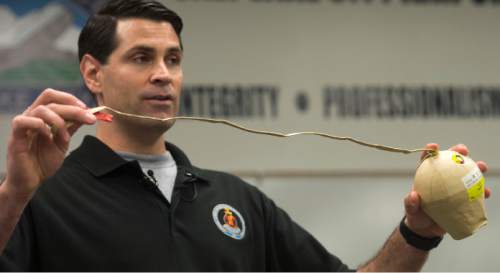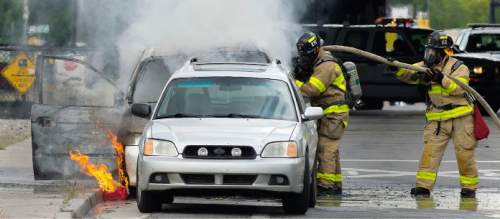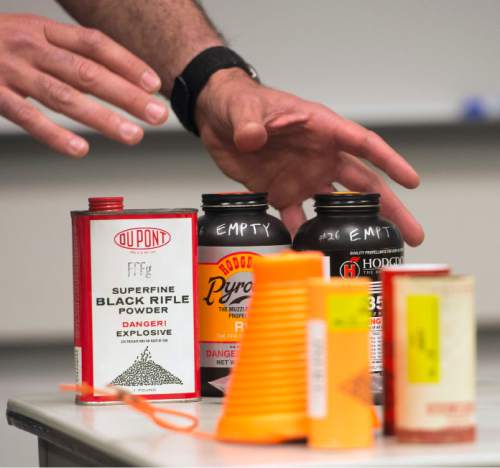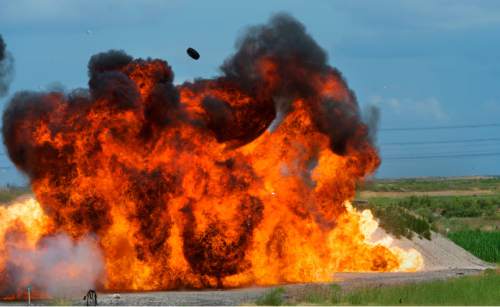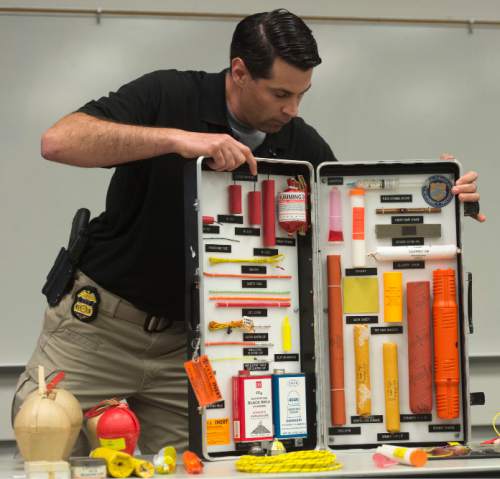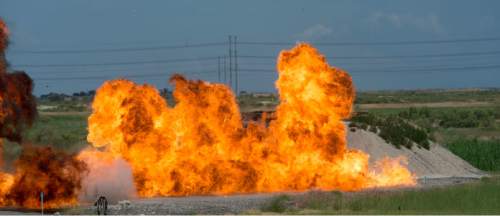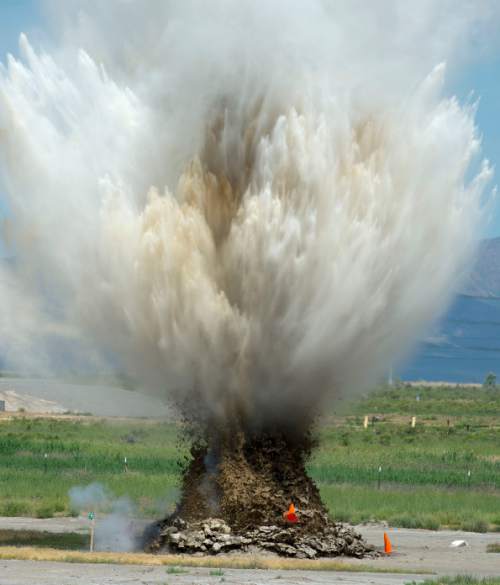This is an archived article that was published on sltrib.com in 2015, and information in the article may be outdated. It is provided only for personal research purposes and may not be reprinted.
A new program targeting unwanted explosives was launched Thursday by the Bureau of Alcohol, Tobacco, Firearms and Explosives (ATF) and the Utah Bomb Squad Task Force.
Hill Air Force Base ordinance technician Sgt. David Olson said that there are "thousands of explosives" across the state that could be a danger to people.
"If you come across explosives, please call your local police department or ATF," Olson said Thursday at a news conference where the ATF demonstrated the dangers of explosives by conducting a demonstration for media representatives.
He stressed that if people discover explosives at home or elsewhere they should not touch or try to move them. Rather, call authorities and let them handle things.
The program comes in the aftermath of several incidents involving unsecured explosives.
On Wednesday, a Tooele County family found 86 sticks of unstable dynamite at the home of a deceased relative. The family reported the findings to the bomb squad, which safely disposed of it.
In 2009, a farmer accidentally killed himself trying to dispose of an old dynamite on his farm in Box Elder County.
During Thursday's demonstration, an Anfo (ammonium nitrate-fuel oil) was one of the explosives demonstrated Thursday. This explosive was similar to that used in the 1995 Oklahoma City bombing, where Timothy McVeigh and Terry Nichols parked a truck containing the explosive outside Alfred P. Murrah Federal Building, killing 168 people and injuring hundreds more.
ATF issues a license to obtain explosives. The local fire departments are kept apprised of licenses issued.
The United States Geological Survey found that 71,000 metric tons of explosives were sold in Utah in 2013.
Anyone wanting to get rid of unwanted explosives can call a new hotline at 888-ATF-BOMB. For additional information on ATF, log onto http://www.atf.gov
The ATF accepts commercial explosives, homemade explosives, military ordnance, display fireworks and consumer fireworks. The agency does not accept ammunition or hazardous materials not classified as explosives.
The agency receives between 10 and 20 calls per year from residents reporting explosives, according to the ATF.


